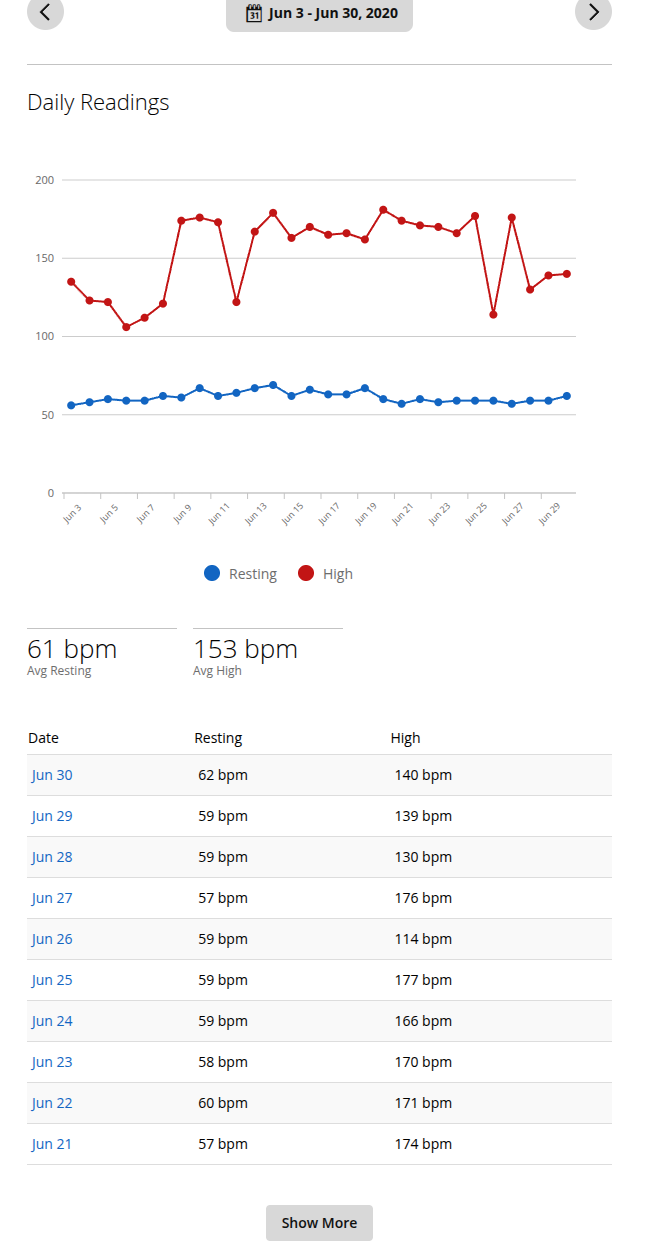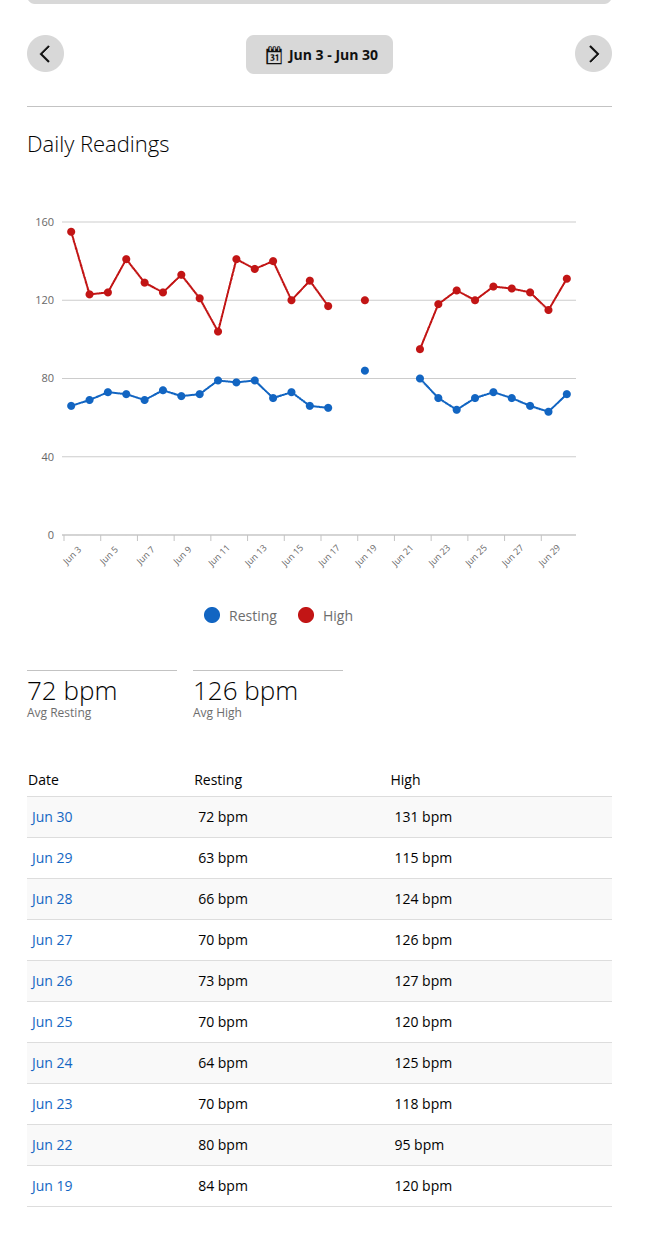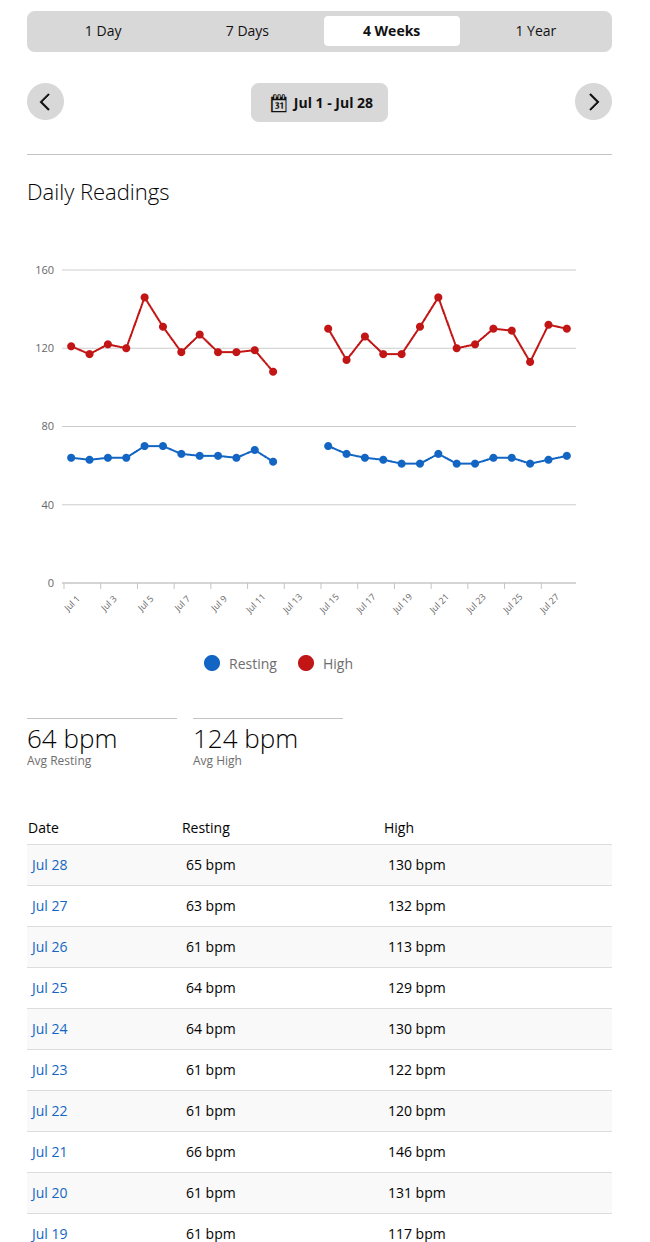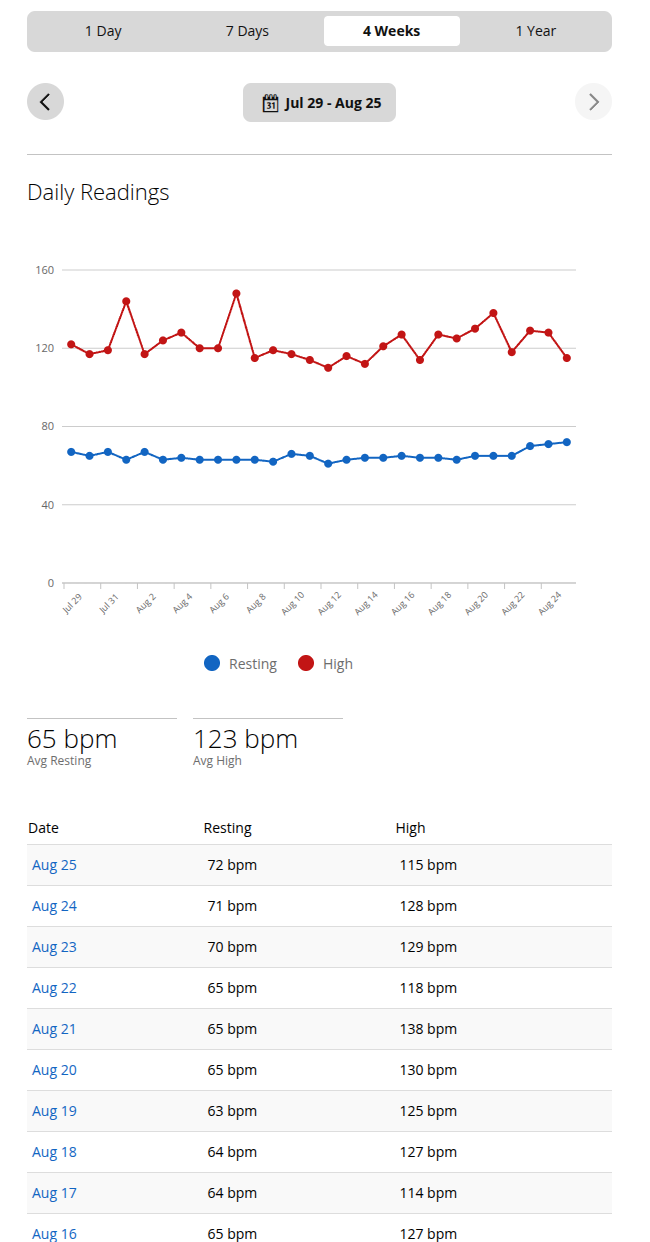Retatrutide Heart Rate Side Effects: Real User Data Shows Decrease
While researching retatrutide before starting my protocol, I kept noticing the same pattern across forums and Reddit posts - people reporting heart rate increases. The reports were remarkably consistent: users mentioning their resting HR jumping 5-10 beats per minute within the first few weeks, which made me dig deeper into what the clinical data actually showed.
Turns out the research backs up what people were experiencing: retatrutide causes dose-dependent heart rate increases of [5.6-7.5 bpm](https://auctoresonline.org/article/retatrutide-as-a-novel-treatment-for-obesity-and-type-2-diabetes), peaking at 24 weeks. This is well-documented across the Phase 2 trials published in major journals.
Eight weeks later, something unexpected happened: **my heart rate went down, not up**.
I've been wearing a Garmin watch continuously since 2016, starting with the Fenix 3 and never taking it off except when charging. There are occasional gaps when I lose the charging cable and wear it dead for days while hunting for the cord, but I have nearly continuous heart rate data going back almost a decade.
Currently wearing the [Garmin Fenix 5X](https://amzn.to/46dbDvQ) I've had this one for years and only replaced the battery once about 6 months ago. The battery still lasts weeks when I'm not using GPS frequently, and the health tracking has been invaluable for documenting this journey.
**The data tells a clear story:**
**June 2020 (5 years ago, healthier baseline):** 61 bpm average resting HR

**May-June 2025 (immediately before retatrutide):** 71-72 bpm average, some days hitting 80+ bpm

**July 2025 (first month on retatrutide):** 64 bpm average, showing immediate normalization

**August 2025 (8 weeks after starting retatrutide):** 64-65 bpm average, stable and consistent

**The Clinical Reality vs. My Experience**
According to the [New England Journal of Medicine Phase 2 trial](https://www.nejm.org/doi/full/10.1056/NEJMoa2301972), heart rate "increased in a dose-dependent manner with retatrutide up to 24 weeks and then declined thereafter". In the obesity trial specifically, the [placebo-adjusted increase was 5.6 bpm at 48 weeks](https://auctoresonline.org/article/retatrutide-as-a-novel-treatment-for-obesity-and-type-2-diabetes).
[Cardiac arrhythmias occurred in 4-14%](https://pmc.ncbi.nlm.nih.gov/articles/PMC10844714/) of retatrutide groups compared to 2-3% in placebo groups. One trial even reported [heart rate increases of up to 6.7 beats/min](https://pubmed.ncbi.nlm.nih.gov/37947489/).
Yet here I am, trending in the opposite direction - not just stable, but actually returning to a more normal baseline from 5 years ago.
**Why This Makes Physiological Sense**
The difference likely comes down to starting point. The clinical trials enrolled people across a range of baseline health states, but the "average" response masks individual variation based on cardiovascular stress levels.
At 336 pounds with years of poor lifestyle choices - 500ml of Jameson nightly, chronic stress, inflammatory diet, poor sleep - my cardiovascular system was working overtime. That 71-72 bpm wasn't my "normal" resting heart rate; it was my heart under chronic stress.
**What retatrutide has done for me:**
- 37+ pounds of weight loss = reduced cardiac workload
- Eliminated alcohol consumption (unexpected side effect)
- Improved sleep quality (especially with tesamorelin addition and [magnesium supplementation](https://amzn.to/4fLzK7S))
- Reduced systemic inflammation from better diet
- Lower overall stress on cardiovascular system
My heart rate isn't being artificially suppressed by retatrutide - it's returning to what was actually normal before years of lifestyle deterioration put it under stress.
**The Takeaway for Others**
If you're considering retatrutide and worried about heart rate increases, your baseline matters enormously. The clinical data showing increases is real and consistent across trials, but individual responses depend heavily on your starting cardiovascular state.
**If you're starting from good cardiovascular health:** You'll likely see the commonly reported slight increases as your system adjusts.
**If you're starting from cardiovascular stress:** Like I was, you might experience normalization rather than elevation as the root causes of that stress begin to resolve.
The "side effect" I experienced wasn't really a drug effect - it was my body returning to health as retatrutide addressed the underlying issues causing cardiovascular stress in the first place.
Nine years of continuous heart rate data gives me confidence in this interpretation. Without my 2020 baseline showing 61 bpm, I might have thought 71-72 bpm was normal for me. The historical context reveals that retatrutide facilitated cardiovascular recovery rather than creating new stress.
*Have you tracked heart rate changes on retatrutide or other GLP-1s? Your baseline health status might be the key determining factor.*
::subscribe[{"variant":"default"}]
---
**Disclaimer:** The information provided on this site is for **educational and informational purposes only** and reflects my **personal experiences and opinions**. It is **not** intended as medical advice, diagnosis, or treatment. Retatrutide is an **investigational drug** that is **not approved by the U.S. Food and Drug Administration (FDA)** for any use outside of clinical trials. Always consult a licensed healthcare professional before making any decisions regarding medications, supplements, or medical treatments.
As an Amazon Associate I earn from qualifying purchases. Some links on this site may be affiliate links.